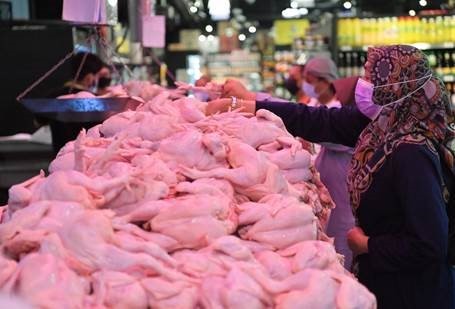
Image credit: Borneo Post Online
PETALING JAYA: The Russia-Ukraine conflict may be happening thousands of miles away but its impact could be hitting the pockets of average Malaysians.
With inflationary pressures already rising over the past several months, exacerbated by supply chain disruptions, the conflict will force Malaysians to fork out more for some products in the market.
Both Russia and Ukraine are major suppliers of grains and vegetable oils and the ongoing deadly conflict could fan food inflation here in Malaysia.
Economists said the severity of the impact will ultimately depend on how long the conflict persists.
Socio-Economic Research Centre (SERC) executive director Lee Heng Guie told StarBiz that the inflationary pressures will come from the supply chain disruptions in Russia and Ukraine, as well as increased prices of wheat, corn and industrial materials.
This, in turn, would result in costlier animal feed for the poultry industry and fertilisers for the planters and farm growers, he said.
“These producers, who cannot absorb further increases in the cost of production, will then pass it on to consumers.
“There remains a risk of exerting upward pressure on consumer inflation if the producers’ costs stay elevated due to the prolonged Russia-Ukraine war,” said Lee.
However, he noted that the government has already imposed price ceilings for chickens and eggs until June to help keep prices stable.
On Jan 31, the National Action Council on Cost of Living had set the maximum price for standard chicken at RM8.90.
Prices of chicken eggs for all grades were retained, similar to those set under the Keluarga Malaysia Maximum Price Control Scheme.
The price ceilings are effective from Feb 5 until June 5.
Apart from poultry products, the Russia-Ukraine conflict has also caused crude palm oil (CPO) prices to soar even higher, surpassing RM7,000 per tonne.
Yesterday, CPO price hit RM7,410 per tonne, according to the Plantation Industries and Commodities Ministry.
Lee cautioned that soaring CPO prices would result in costlier cooking oil, moving forward.
Echoing a similar stance, economist Manokaran Mottain said the Russia-Ukraine conflict would affect Malaysia in several ways, including through the import of grains as feed for the domestic poultry industry.
“Even if we don’t buy directly from these two countries, we would still feel the impact if the country we are importing chicken feed from is sourcing their raw materials from either Russia or Ukraine.
“After all, both countries are major grains producers and exporters,” he said.
Given Malaysia’s price ceilings on poultry currently, the producers would be further affected as they could not transfer the higher costs to consumers.
It was reported previously that poultry producers face RM200mil in losses per day with the implementation of the price ceilings.
Manokaran said the government could consider raising the ceiling prices to reduce the cost pressures on producers, although this would affect the end-consumers.
“Another way is for the government to provide additional subsidies to producers to help them sustain,” he added.
Manokaran, who is also a director of Rising Success Consultancy, pointed out that the Russia-Ukraine conflict would continue to push up crude oil prices globally.
“While this means that the government would have to fork out more for RON95 and diesel subsidies in Malaysia, the government will also be making more proceeds from the sale of petroleum,” he said.
As at press time yesterday, May Brent-grade crude oil futures touched US$101.84 (RM427) per barrel due to fears over potential supply disruptions following Russia’s invasion of Ukraine and related sanctions on the former.
However, Lee said that Malaysians are sheltered from surging crude oil prices and fuel inflation due to the fuel subsidies.
“The fuel subsidies could potentially balloon to an estimated RM12bil to RM14bil for RON95 and diesel as the crude oil has soared to about US$102 (RM428) per barrel now compared to the Budget 2022’s assumption of US$66 (RM277) per barrel,” he said.
Source: https://www.thestar.com.my/business/business-news/2022/03/02/malaysian-walletsfeeling-the-heat

